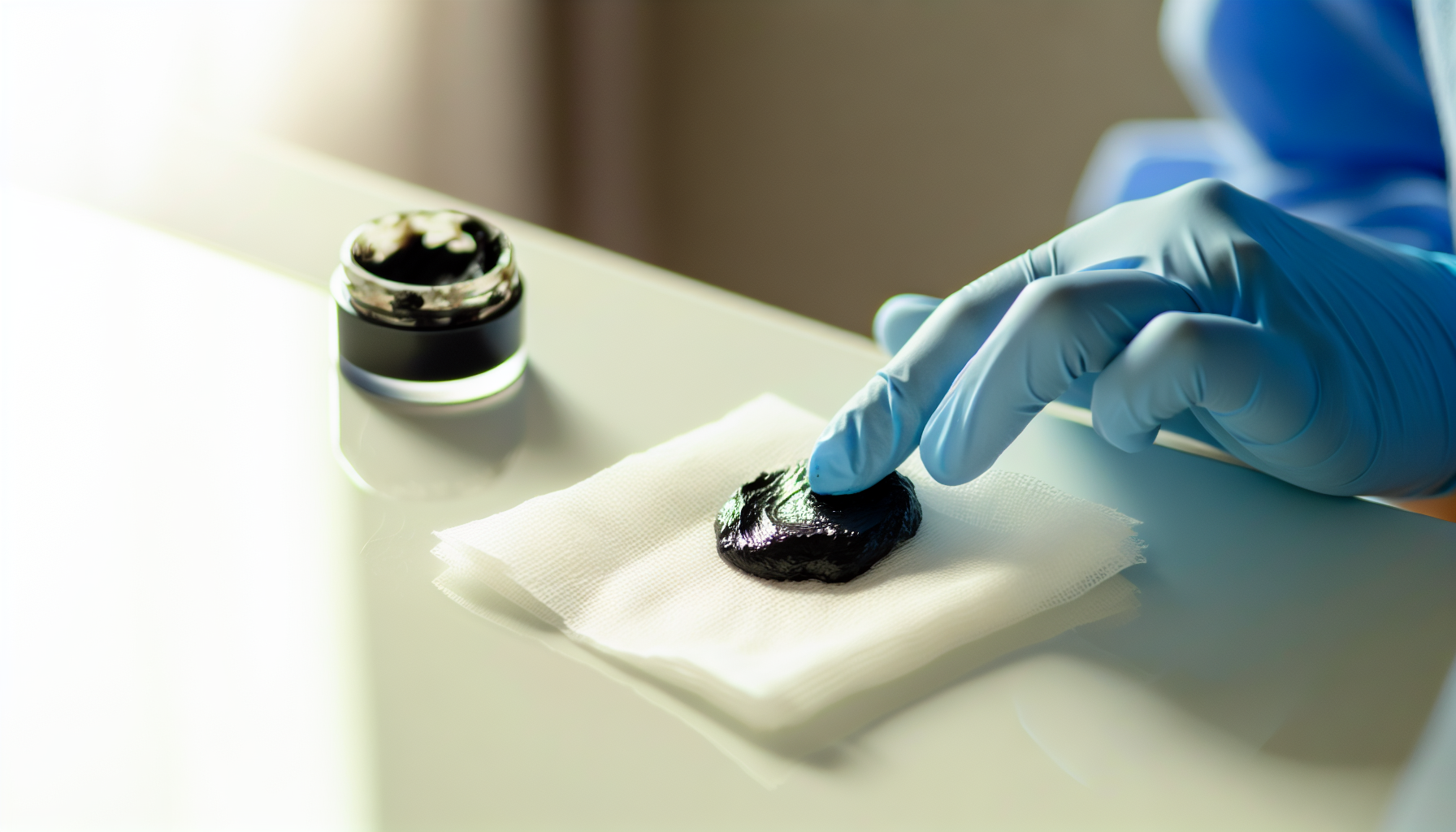The term “Black Salve” may not be common in everyday language, but within the realm of alternative medicine, it’s a significant player. Black Salve, also known as Cansema, is a controversial topical treatment used by some for skin cancer. It’s a type of escharotic, which means it injures the skin and creates an eschar, or a piece of dead tissue. This is a comprehensive guide on how to correctly use Black Salve for cancer treatment.

Understanding the Potency of Black Salve in Cancer Therapy
Black salve contains several potent ingredients, including bloodroot (Sanguinaria canadensis) and zinc chloride, both of which are known for their potential anti-cancer properties. The salve works by directly attacking cancerous cells, causing them to die off and form an eschar, which eventually falls away, leaving healthy tissue behind.
However, its use is controversial. While many users swear by its efficacy in eliminating cancerous growths, mainstream medical professionals often warn against its use. They argue that black salve can cause severe skin damage and may even exacerbate the spread of cancer by delaying more conventional and proven treatments. Nonetheless, those who favor Black Salve argue that, when used correctly, it can be a viable alternative to more invasive methods of cancer treatment.
Step-by-Step: How to Safely Apply Black Salve for Cancer
Using Black Salve should always be done under the guidance of a healthcare professional or someone knowledgeable about its application. Here’s a step-by-step guide on the correct usage:
- Initial Consultation: Ensure that you have a confirmed diagnosis and that your healthcare professional agrees that Black Salve is a potentially suitable treatment option.
- Preparation: Clean the affected area with mild soap and water. Pat dry.
- Application: Using a cotton swab, apply the Black Salve to the affected area only. Avoid applying to healthy skin as it may cause unnecessary damage.
- Bandaging: Cover the area with a sterile bandage.
- Waiting Period: Within 24 hours, the area may become inflamed, and an eschar may begin to form. This is a part of the process.
- Aftercare: Once the eschar falls off naturally, clean the wound and apply a healing balm or salve.
Preventive Measures to Avoid Black Salve Side Effects
Black Salve can have side effects, hence the need for caution and preventive measures. It can cause pain, burning, and skin damage. In some cases, it can also lead to severe scarring and disfigurement.
To mitigate the risk of side effects, it is imperative to use Black Salve judiciously and under the guidance of a healthcare professional. This means applying it only to the cancerous growth and not the surrounding healthy tissue. It’s also crucial to monitor the reaction and seek medical help if severe pain, inflammation, or signs of infection occur.
Evaluating the Efficacy: Personal Experiences with Black Salve
The efficacy of Black Salve is a topic of hot debate. On social media platforms and various online forums, people share their success stories of using Black Salve to treat skin cancer. They often provide photographic evidence and testimonies of the Black Salve’s ability to eradicate their cancerous growths.
Conversely, there are also accounts of negative experiences where Black Salve caused severe skin damage and failed to eliminate cancer. These contrasting experiences highlight the importance of approaching Black Salve treatment with caution and the need for further research into its efficacy and safety.
Conclusion
The use of Black Salve for cancer treatment is a controversial topic, with ardent supporters and skeptics alike. While some individuals report positive experiences with the treatment, others warn of its potential risks and harmful side effects. It is vital that anyone considering this treatment approach it with due caution and always under the guidance of a healthcare professional.